The AMD 2nd Gen Ryzen Deep Dive: The 2700X, 2700, 2600X, and 2600 Tested
by Ian Cutress on April 19, 2018 9:00 AM ESTCPU Legacy Tests
Our legacy tests represent benchmarks that were once at the height of their time. Some of these are industry standard synthetics, and we have data going back over 10 years. All of the data here has been rerun on Windows 10, and we plan to go back several generations of components to see how performance has evolved.
All of our benchmark results can also be found in our benchmark engine, Bench.
3D Particle Movement v1
3DPM is a self-penned benchmark, taking basic 3D movement algorithms used in Brownian Motion simulations and testing them for speed. High floating point performance, MHz and IPC wins in the single thread version, whereas the multithread version has to handle the threads and loves more cores. This is the original version, written in the style of a typical non-computer science student coding up an algorithm for their theoretical problem, and comes without any non-obvious optimizations not already performed by the compiler, such as false sharing.
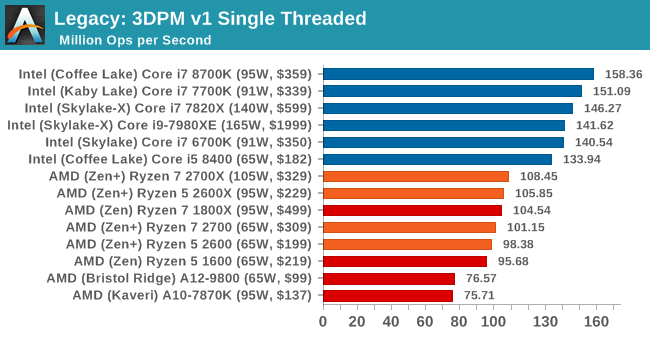
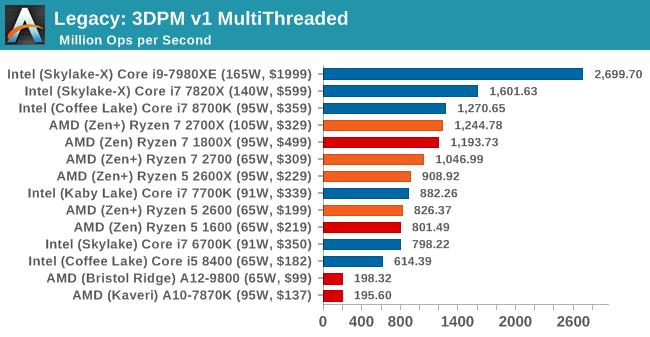
CineBench 11.5 and 10
Cinebench is a widely known benchmarking tool for measuring performance relative to MAXON's animation software Cinema 4D. Cinebench has been optimized over a decade and focuses on purely CPU horsepower, meaning if there is a discrepancy in pure throughput characteristics, Cinebench is likely to show that discrepancy. Arguably other software doesn't make use of all the tools available, so the real world relevance might purely be academic, but given our large database of data for Cinebench it seems difficult to ignore a small five minute test. We run the modern version 15 in this test, as well as the older 11.5 and 10 due to our back data.
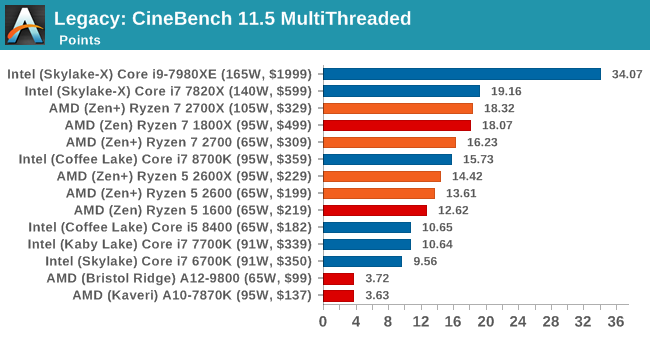
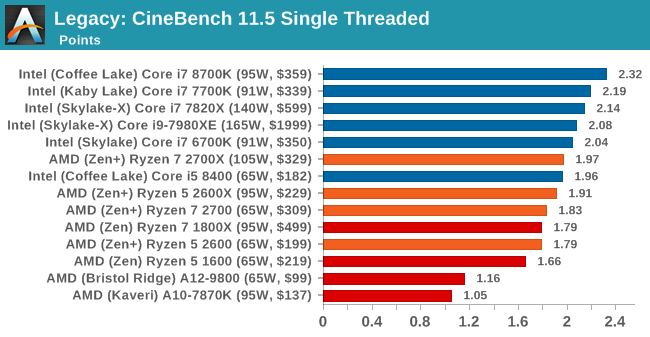

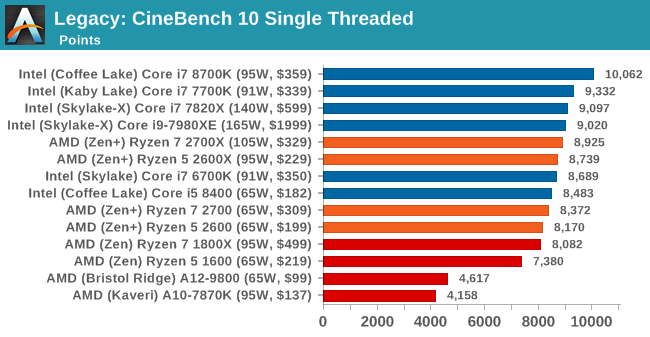
x264 HD 3.0
Similarly, the x264 HD 3.0 package we use here is also kept for historic regressional data. The latest version is 5.0.1, and encodes a 1080p video clip into a high quality x264 file. Version 3.0 only performs the same test on a 720p file, and in most circumstances the software performance hits its limit on high end processors, but still works well for mainstream and low-end. Also, this version only takes a few minutes, whereas the latest can take over 90 minutes to run.
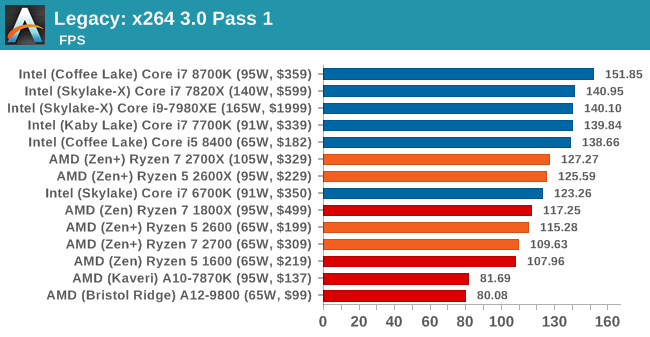
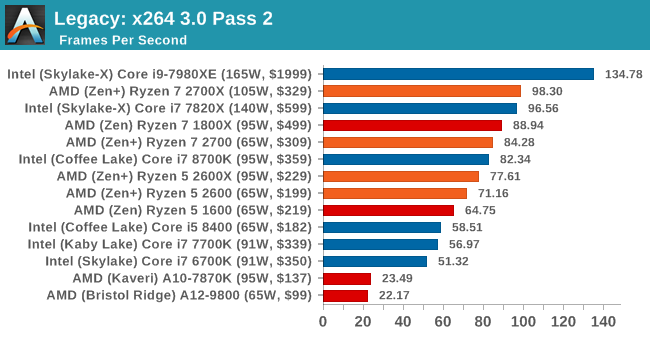










545 Comments
View All Comments
Santoval - Thursday, April 19, 2018 - link
It's possible that the first consumer Intel 8-core will be based on Ice Lake. Cannon Lake will probably largely limited to low power CPUs, and will probably top out at 4 cores. Of course if Ice Lake is delayed again Intel might scale out Cannon Lake to more cores. Cannon Lake will be just a 10nm node of the Skylake/Kaby/Coffee Lake architecture, so it will most likely provide mostly power efficiency gains.aliquis - Thursday, April 19, 2018 - link
Latest road map show coffee lake refresh in Q4.mahoney87 - Thursday, April 19, 2018 - link
lol :Dhttps://imgur.com/SmJBKkf
They done fecked up
Luckz - Monday, April 23, 2018 - link
Rocket League is a joke game when it comes to benchmarking, optimization and so on.Chris113q - Thursday, April 19, 2018 - link
Do you really need to be spoon-fed information? How long would it take you to find the other reviews by yourself?PCPER, Tweaktown, Toms Hardware, Hothardware, Computerbase all had different results (can't post link due to spam protection). Not to mention you'd have to be totally tech illiterate to believe that stock 2600 can beat 8700k by such a huge margin. Meltdown/Spectre patches don't affect gaming performance that much, so don't you put blame on that.
The result discrepancy is embarrassing, there goes the last speck of reputation Anandtech had as a reliable source of tech news.
MuhOo - Thursday, April 19, 2018 - link
You sir are right.Aegan23 - Thursday, April 19, 2018 - link
You do know who Ian is, right? XDsor - Thursday, April 19, 2018 - link
Anandtech has no responsibility to go out and ensure their results match up with anyone else’s. They run their own selection of tests with their own build and report the numbers. They provide the test setup, if you can’t spot the differences that’s your own issue.Ryan Smith - Thursday, April 19, 2018 - link
"Anandtech has no responsibility to go out and ensure their results match up with anyone else’s"Responsibility? No. But should we anyhow? Yes.
Our responsibility is accuracy. If something looks weird with our data - which it does right now - then it's our job to go back, validate, and explain the results that we're seeing. If our results disagree with other sites, then that is definitely an indication that we may have a data issue.
xidex2 - Thursday, April 19, 2018 - link
I bet none of the other sites applied spectre and meltdown patches for Intel because they dont care about such things. Intel fanboys are now crying because someone actually showed true numbers.